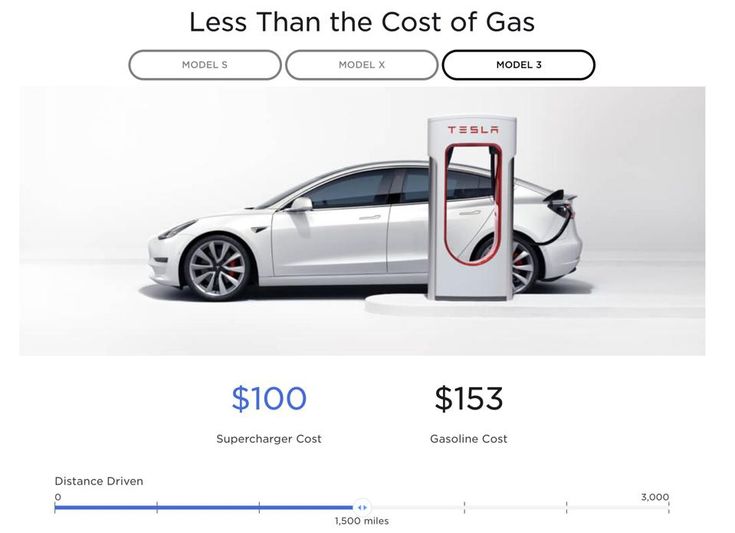
Aurora, a Silicon Valley startup, was founded by ex-Google employees. Waymo was the company's name in its early days. The company was focused on self-driving technology. It is now an autonomous systems startup operating from a secretive Palo Alto location. The company has been fundraising money and is trying make the self-driving cars a profitable business. The company has raised more than $690 million in funding and is looking to raise $2 billion.
The company boasts a talented team. Chris Urmson was the former Google self-driving car project leader. After launching Waymo's driverless car program, he left Google. Sterling Anderson (ex-Tesla executive) is another important member.
Aurora isn't ready to launch a fully autonomous vehicle yet, but it has been testing its truck systems in Texas. These trucks are built on Sienna Autono MaaS. These trucks can move people as well as goods. They are expected to be on-the road by 2020. The company also plans to expand its teleoperation capabilities. This system allows specialists to remotely monitor and operate a vehicle through a camera.

The company has also been working on the hardware and software to implement its self driving car technologies. The company also has a sophisticated LIDAR sensor. The system is capable of detecting vehicles, obstacles, and the surrounding environment. This makes it a good candidate to be a contender for the future of the automotive industry.
The Aurora self driving car technology has been integrated into six different types of vehicles. It has been tested in real-world and simulated environments. The company is also testing the safety features of the car and how they perform in a crash.
Aurora has also announced a few partnerships. As is Fiat Chrysler, the Hyundai Motor Group has partnered with Aurora. It is also working with Byton, the Chinese electric vehicle startup. Aurora is working with Byton to develop technology for autonomous transportation.
Self-driving trucks will be the first product to go commercial. The Aurora Connect truck will be the first commercial product. It is built on the Sienna Autono–MaaS-based platform and will undergo testing in Texas. This will be the first state in which the company will deploy their products.

Chris Urmson is the founder of Aurora Motor Company. This Silicon Valley startup also has offices in Pittsburgh and the Bay Area. Aurora Driver is the company's latest version. The software and hardware can be combined to install it in many vehicle types. It has been tested in the Bay Area, Dallas, and the Pittsburgh region. It was also tested in the Toyota roboticaxi.
The company is also seeking to partner with other car manufacturers. Volkswagen has expressed interest in using the Aurora self driving car technology for its self driving logistics vehicles.
FAQ
What length is an automotive course?
An automotive course lasts 3 years.
The first year of your training is devoted to theory. You will learn all about cars. The second year is dedicated towards practical training. This includes learning how to drive, fix engine problems, and doing other maintenance jobs around your car. The final year is spent doing a placement at a local garage, which gives you experience in fixing real-world problems.
How long does an apprenticeship in automotive mechanics last?
An automotive mechanic apprenticeship takes around three years to complete. This includes two year at school as well as two years as an apprenticeship. The first year teaches you all aspects, from theory to practical skills and safety procedures. This year, you will also learn how to safely and efficiently use tools. After the first year, a second year will be spent on-thejob training. This year you'll get experience in different trades. These periods will also give you the chance to take formal courses.
The final year of the program is spent gaining qualifications and becoming certified in the field. These include NVQs (National Vocational Qualifications), which are awarded after passing exams covering specific topics within the industry. Additionally, HNCs are Higher National Certificates that cover general subjects such management, customer service, and business administration. For those interested in pursuing certain trades, City & Guilds certificates are available.
Is it worth becoming a mechanic?
The answer to this question will depend on your goals for life. If you are looking for financial gain, then yes. However, if purpose and meaning are what you seek, then no.
You don't need to be a mechanic if you don't know how. It's not going to make you rich. It's unlikely that you will be famous. It is unlikely that your life will change.
It would take you years to learn how to do everything correctly. This would mean that you would have to pay someone else for your car's repair. It's the reason most people don't bother. They find something more worthwhile.
Summarising, if your goal is to make lots of money, go for it. If you are looking for a fulfilling life, however, then stay clear of the mechanics' industry.
What is the difference?
Although they may be similar, they are not identical. An automotive technician maintains cars, while a mechanic repairs them.
A mechanic must possess good manual dexterity, and be able perform simple tasks efficiently. They must also be able to diagnose problems accurately and repair them effectively.
An automotive technician must be more technically proficient than a mechanic. They must be able to read blueprints and use tools such as drills and wrenches.
They must also be able to carry out complex procedures safely. They should also be familiarized with the different types of engines as well as electrical systems.
They should also be able understand how different parts interact.
As a result, mechanics typically make less than technicians. There are many job opportunities in both.
How can I fix my automobile as a hobby.
Why not make it a hobby if you're interested in cars? You can learn to fix them, buy them parts, and even sell them. If you are looking for something new, this would be a great hobby.
But it is not easy to turn this into your full-time occupation. It takes dedication and hardwork. It requires a lot investment.
So unless you have a good reason for wanting to get involved with cars, then it might be best to leave it alone.
What qualifications are required to become a truck mechanic
This job requires you to be a skilled mechanic, although you do not need any formal training. Your expertise is invaluable because you know how quickly and efficiently to diagnose problems.
You also have an excellent knowledge of diesel technology which will help you to understand what parts are needed to repair our vehicles.
Statistics
- There were 749,900 jobs available for automotive service technicians and mechanics in 2016, which is expected to grow by six percent through 2026. (jobhero.com)
- According to the BLS, total auto technician employment is expected to exceed 705,000 by 2030. (uti.edu)
- The U.S. Bureau of Labor Statistics (BLS) reports that the job outlook for automotive service technicians and mechanics is expected to decline by 4% from 2019 to 2029. (indeed.com)
External Links
How To
How to Become an Automotive Technician
An automotive technician is responsible for vehicle maintenance and repair. He/she works at car dealerships, auto shops, garages, service centers, etc. He/she works with customers to repair their cars and trucks, ATVs or snowmobiles. An automotive technician must be able to diagnose problems and make repairs quickly, safely, accurately, and efficiently.
An associate degree should be obtained from a vocational school if you wish to work as an auto technician. After completing this program, he/she must pass the National Institute for Automotive Service Excellence (ASE) certification exam. ASE stands for American Society of Mechanical Engineers. The ASE certification test consists of two sections. The first section tests for mechanical knowledge, the second for practical skills. To pass the test you must go to one of the authorized testing facilities. These locations can be found online, or by contacting your local car dealer.
After passing the test, a candidate must pass a state examination before becoming licensed as an automotive technician. This process is different depending on where you live. Some states require that applicants attend a training class, while others allow them freedom to study at their own pace. Some states permit technicians to work immediately after they are granted their license. Others require them to wait at least six consecutive months before they can be licensed.
A person must apply to an auto dealership in order to get started as an automobile technician. Once hired, most new employees start out working as apprentices. Apprenticeships last for three years. Students learn basic repair skills such as changing oil and adjusting brakes, changing tires, cleaning spark plugs and inspecting engine compartments. Some students learn how to do advanced repairs, such as installing air filters, replacing shocks, repairing engines, and replacing transmission fluids. Schools offer classes during business hours. However, there are some schools that offer evening classes for those who need them.
After completing an apprenticeship, a student becomes a journeyman. Journeymen generally spend four- to five decades learning how to fix major systems like transmissions. They also learn to perform complex repairs, such as remanufacturing engines, rebuilding transmissions, and troubleshooting electrical components. Employers prefer to hire journeymen as they are familiar with the job and can anticipate customer needs.
If a candidate successfully passes the required exams and receives a license, he/she might want to consider starting his/her own shop. According to Bureau of Labor Statistics (2010), almost 1.7million automotive mechanic jobs were on the market. That number was expected to grow by 18 percent from 2009 to 2020. When a candidate plans to open his/her own shop he/she should be ready to invest thousands of dollars in equipment.
Automotive technicians' salaries depend on many factors such as the employer, whereabouts, education level and experience. An average salary for a jobless individual is $20,000 per annum. A high school diploma is all that's required to earn approximately $21,000 annually. Those with an associate's degree earned approximately $24,000 per year. Technicians with bachelor's degrees earned about $27,000 per year. And those with master's degrees made around $32,000 per year. Salary increases are common, so a professional who earns less than $30,000 now could reasonably expect to earn $40,000 or more in just a few years.